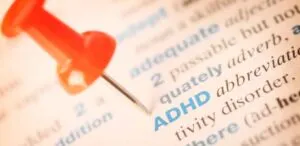Depression:
Depression (commonly known as Major Depressive Disorder) is a medical condition affecting your mood and ability to function. It has a detrimental impact on your feelings, thoughts, and behavior. It is estimated by the world health organization that 5% of adults suffer from depression. Suicide attempts are also part of the symptoms of depression
Sadness and/or a loss of interest in previous interests are indications of depression. An estimated 3.8% of the world’s population suffers from depression, including 5.0% among adults and 5.7% among adults older than 60.
What are the symptoms of depression?
Depending on the frequency and severity of symptoms, the influence on the person’s functioning, and the length of the episode, a depressive episode can be classified as mild, moderate, or severe. Among the symptoms of depression are:
- Feeling very sad, despairing, or worried
- Loss of enjoyment in once-enjoyed activities
- Changes in appetite
- Increased fatigue or energy loss
- Feelings of irritability, frustration, or restlessness
- Feelings of guilt, worthlessness, or helplessness
- Having trouble focusing or remembering things
- Having bodily issues such as headaches, cramps, pains, and digestive problems
- Changes in how much you sleep
For a diagnosis, symptoms of depression must persist for at least two weeks and must indicate a shift from your post-level of functioning. Not every sign of depression is present in every person. While some people may only have a few symptoms, others could have numerous. For severe symptoms of depression diagnosis, there must be several enduring symptoms in addition to a depressed mood.
What causes depression?
Depression is one of the most common mental disorders in the US. Though it can start at any age, it frequently does so in adulthood. Symptoms of Depression result from a complex combination of social, psychological, and biological factors. People who have gone through adverse life events are more likely to develop depression.
Various factors can cause depression:
- Genetics: A family history of depression may exist. You could be more prone to developing depression if a family member already struggles with it.
- Life events: Tension, the death of a loved one, traumatic experiences, loneliness, and a lack of social support can all contribute to depression.
- Biochemistry: Differences in a few brain chemicals may be a factor in the development of depressive symptoms.
- Medical conditions: Chronic physical pain and illnesses might contribute to depression. Diabetes, cancer, and other similar diseases frequently coexist with depression in some people.
- Environmental factors: Some people may be more susceptible to depression if they are constantly exposed to violence, neglect, abuse, or poverty.
- Medication: Depression is a side effect of some prescription meds. Alcohol and recreational drugs can both cause depression or intensify it.
How is depression syndrome diagnosed?
Your healthcare provider will conduct an interview with you to determine whether you have clinical depression. You can fill out a questionnaire and provide a family history. In order to determine whether you have any further medical conditions, your doctor may also conduct an examination or request lab testing.
A medical professional may carry out a full diagnostic assessment before treatment, including an interview and a physical exam.
How is depression disorder treated?
Even the most severe symptoms of depression are treatable. Meanwhile, treatment is more successful the sooner it is started. Treatment for depression includes:
Psychotherapy: or “talk therapy,” is sometimes used to treat mild depression. Cognitive Behavioral Therapy (CBT) is an effective treatment method for depression. CBT helps a person recognize negative thinking to change thoughts more positively.
Medication: A prescription medicine called antidepressants might be prescribed to help modify one’s brain chemistry which causes depression. Antidepressants take a few weeks – to work, and often help symptoms to improve.
Self-help: People can take a variety of actions to assist lessen the symptoms of depression. Regular exercise, a good diet, stable, and quality sleep, and avoiding alcohol can all help lessen the symptoms of depression.
Alternative treatments: Complementary treatment can help those with minor depression or reoccurring symptoms of the condition. Massage, acupuncture, hypnosis, and biofeedback are all forms of therapy.
Brain stimulation treatment: People who suffer from severe depression may benefit from brain stimulation therapy. Transcranial magnetic stimulation (TMS), electroconvulsive treatment (ECT), and vagus nerve stimulation (VNS) are examples of brain stimulation therapies.
What things can you do to prevent depression?
If you’ve previously struggled with depression, you could be more prone to do so again. Get treatment if you are experiencing signs of depression but you can recover more quickly with care. Start:
- Getting adequate sleep
- Maintaining a nutritious diet
- Engaging in regular self-care practices like yoga, meditation, and exercise,
- Getting some physical activity
- Connecting with other people, and talking with people you trust
- Avoiding alcohol, nicotine, or drugs
- Cut back on social media time
- Maintain your treatment plan
- Plan for unavoidable known triggers
Novus Beginning Psychiatry: Your Path to Health and Wellness Starts Here!
We understand that navigating the complexities of mental health can feel overwhelming, but you don’t have to face it alone. At Novus Beginning Psychiatry, we’re here to support you every step of the way. Whether you’re seeking therapy, medication, or a combination of both, our compassionate professionals are dedicated to helping you find the path to a happier, healthier life.
Our highly skilled psychiatrists are experienced in a wide range of mental health conditions, including anxiety, depression, bipolar disorder, OCD, PTSD, ADHD, autism, different types of trauma, and more. We offer evidence-based therapies that have been proven effective in helping individuals overcome their challenges. From cognitive-behavioral therapy (CBT) to couples/family therapy, we utilize the most up-to-date techniques to empower you on your healing journey.
We also recognize that medication is vital in managing certain psychological health conditions. Our team includes Dr. Nibras, who is a board-certified psychiatrist well-versed in medication management. He works closely with you to develop a comprehensive treatment plan, as we believe in the power of personalized care.
So, take the first step towards a brighter future. Contact us today to schedule an appointment. Our friendly staff is ready to assist you in finding a convenient time to meet with our dedicated professionals. Call (832)856-4718 and let us help you take charge of your mental well-being.
Medication Management For Psychiatric Wellness
At Novus Beginning Psychiatry, we’re dedicated to helping you unlock the power of effective medication management. Our team of psychiatrists has years of experience and understands the importance of finding the right balance for your mental health journey. We offer personalized and compassionate care, creating medication plans that are tailored to your unique needs. Our understanding of psychopharmacology allows us to provide the most advanced and evidence-based treatments available.
Our goal is to help you by providing the right medications to enhance your therapy outcomes, reduce your symptoms, and improve your overall well-being. We want to be your trusted partner on the path to a brighter future. Please don’t hesitate to contact us at Novus Beginning Psychiatry to experience the transformative effects of our comprehensive medication management approach.
Who is Dr. Nibras?
Dr. Sohail Nibras is a double board-certified psychiatrist in child, adolescent, and adult psychiatry. He completed his education at Saint Louis University and the American University of Integrative Science. He excels in treatments based on psychiatric care and therapeutic sessions and has experience treating dual psychiatric and substance use disorders. He is an assistant professor at the Menninger Department of Psychiatry and Behavioral Sciences at Baylor College of Medicine in Houston, Texas. He serves as an attending psychiatrist at Texas Children’s Hospital. He trains future psychiatrists and engages in scholarly research projects.
Visit us
Come and visit us at one of our locations in-person or meet us via telepsychiatry/online!
We’re here to help in Texas, ready to meet you in person. If you’re unable to make it in person, don’t worry, we’re also available online, so you can meet us easily from the comfort of your own home. Whether you prefer to see us face-to-face or connect with us online, we’re here to assist you every step of the way.
Address in Sugar Land
120 Eldridge Rd Suite D, Sugar Land, TX 77478
Address in Katy
23410 Grand Reserve Drive, Ste. 401 & 402 Katy, Texas 77494



